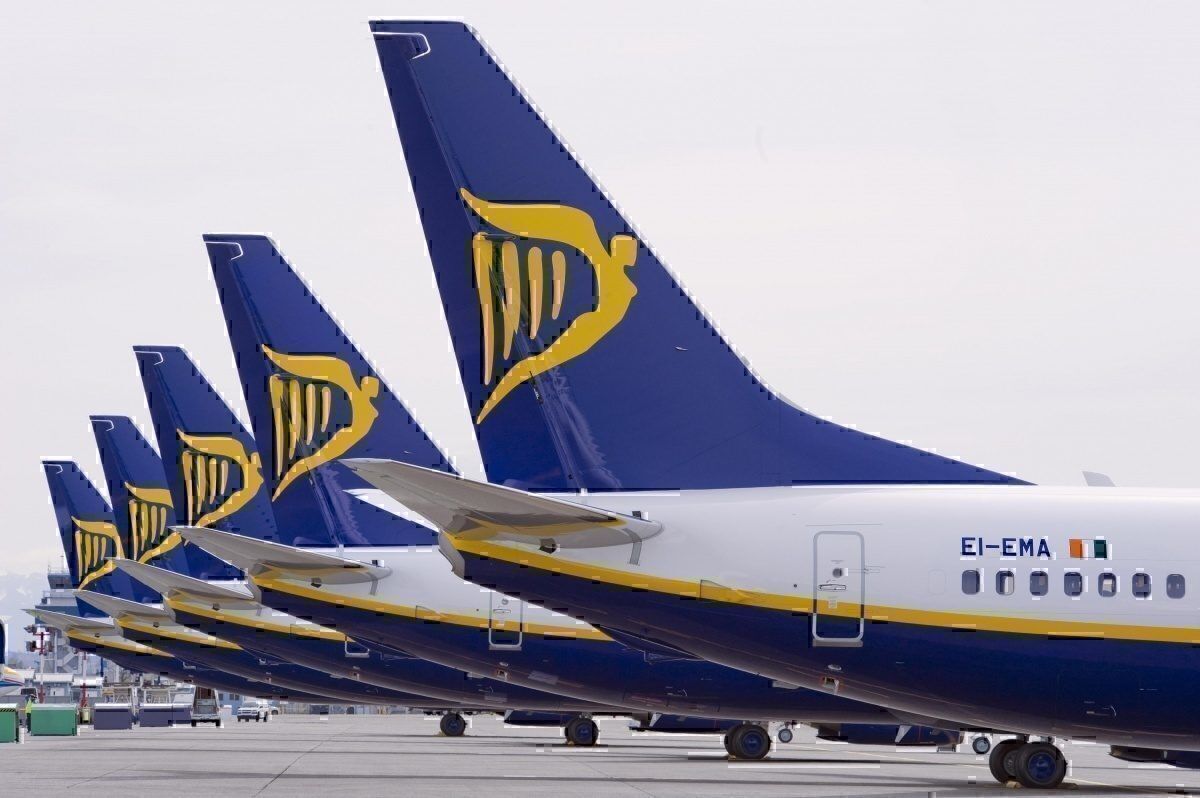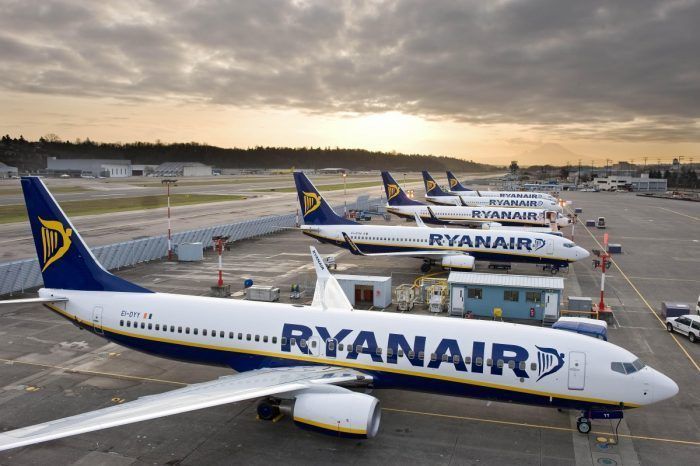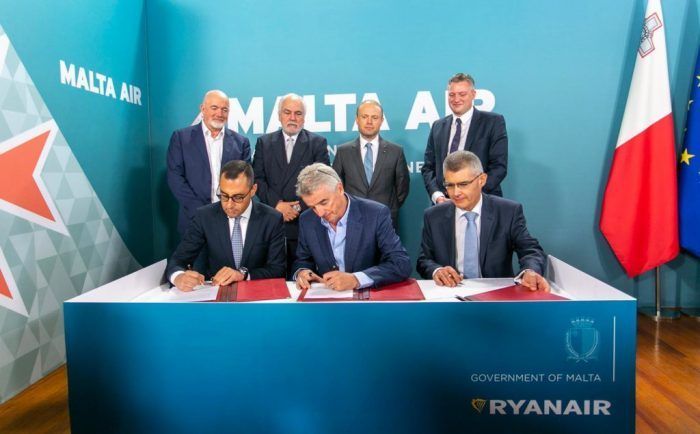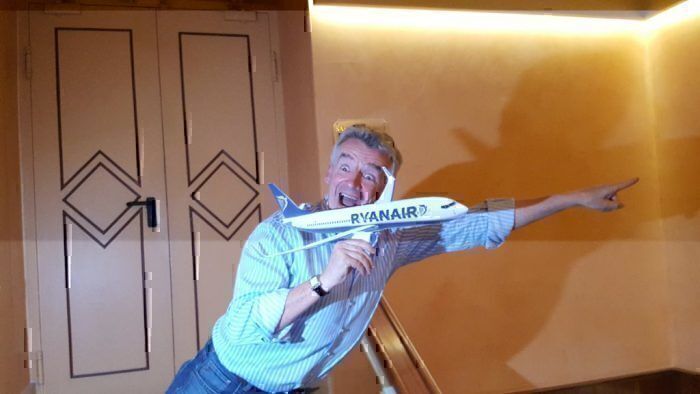Ryanair is to move several European bases over to its newest subsidiary, Malta Air. The reasons for this include local taxation and labor laws for workers at those bases. The low-cost carrier also plans to grow the Malta Air fleet, and is counting on more airline failures or sales to help accelerate that growth.
Beneficial for staff
In Ryanair’s most recent earnings call, the airline revealed plans to move its bases from France, Germany and Italy to Maltese subsidiary Malta Air. Ryanair’s leadership team has identified several reasons for doing this, including for staff taxation purposes.
Chief Financial Officer, Neil Sorahan, said during the earnings call that,
“Malta Air, a new Maltese airline, Maltese AOC, we will put our fixed based aircraft into Valletta into Malta Air this winter. We will also transfer most of the aircrafts that we have based in France, Italy and Germany on to the Maltese AOC. We started that process in May and it continues on a weekly and monthly basis.”
According to CH-Aviation, their fleets advanced module shows Malta Air operating 11 Boeing 737-800s, all of which have been transferred from Ryanair. Two are based at Bordeaux, two at Marseilles, five at Cologne/Bonn and two at Karlsruhe/Baden-Baden.
While Malta Air itself isn’t due to begin operations until the winter season, moving the bases here has a clear benefit for staff employed by Ryanair. Sorahan commented that,
“The advantage of that is this now means our crews in Germany, Italy and in France can pay their income taxes in Germany, in Italy and France, which is a key part of the agreements we reached with unions in those countries to move to local contracts and local taxation, moving them away from historically paid Irish income tax because they were on an Irish AOC.”
Ryanair suffered repeated bouts of industrial action last season, and has had issues with crew for many years. One of the agreements reached during the resolution process was to move employment contracts away from Ireland and onto local labor agreements. The Maltese AOC and moving of the bases has allowed them to do so.
Later, in the question and answer session, CEO Michael O’Leary expanded on this, saying,
“[Malta Air will] also operate our French, German and Italian bases, which enables our crew to pay their taxes locally in those markets, which is an important point for the individual pilots, cabins crew, and the unions. We're also excited of the opportunities that will guest to open up new markets, in the life in the Middle East, North Africa and of course join Malta as such rest of the network.”
Ryanair still banking on other airlines failing
Ryanair has long warned of mass consolidation in the European market, and O’Leary has continued this prediction in this week’s earnings call. Early on in the presentation, O’Leary said,
“We expect other EU airline failures and sales to accelerate [growth of] Malta Air”
During their first-quarter results presentation, Ryanair had noted around 10 failed airlines, including the likes of WOW, Primera and others. At that time, O’Leary predicted further airlines would fail in the 2019/2020 financial year. He expected the crunch to come during winter 2019, particularly if oil prices at the time are $70 a barrel or more.
In the most recent Q&A, O’Leary expanded on this notion, saying,
“I think we're going to see more airline failures and consolidation over the next number of months. The current high fuel environments, particularly if anyone hedged carriers, this is going to cause significant problem. The airlines start to get over peak cash flow when we move into winter. And again, they’re going to see the cash for June. They're going to see the credit card companies holding back more and more cash to the carriers.
“So, I think where we’re moving to more towards more failures, more consolidations. We already have couple of airlines up for sale, the likes of Thomas Cook. Alitalia will get resolved fairly soon as well. So I think there’ll be a lot of opportunities to grow over the next month and years for the Ryanair Group Airlines.”
Previously, O’Leary has said how he wants to create an IAG of low-cost carriers. With four separate airlines (five if you count the one-aircraft Ryanair UK, only in existence as a backstop to a hard Brexit), he seems to be well on the way to doing just that. Rather than expand the Ryanair brand, he’s allowed his empire to diversify, flying under separate branding that readily appeals to local passengers.
Although counting on other airline failures for your own growth is a pretty bleak way to build business, it’s probably not an entirely unrealistic forecast. For now, Ryanair looks to be in a strong position to come out on top, and says that it is still on target for 200 million passengers a year by 2024.




